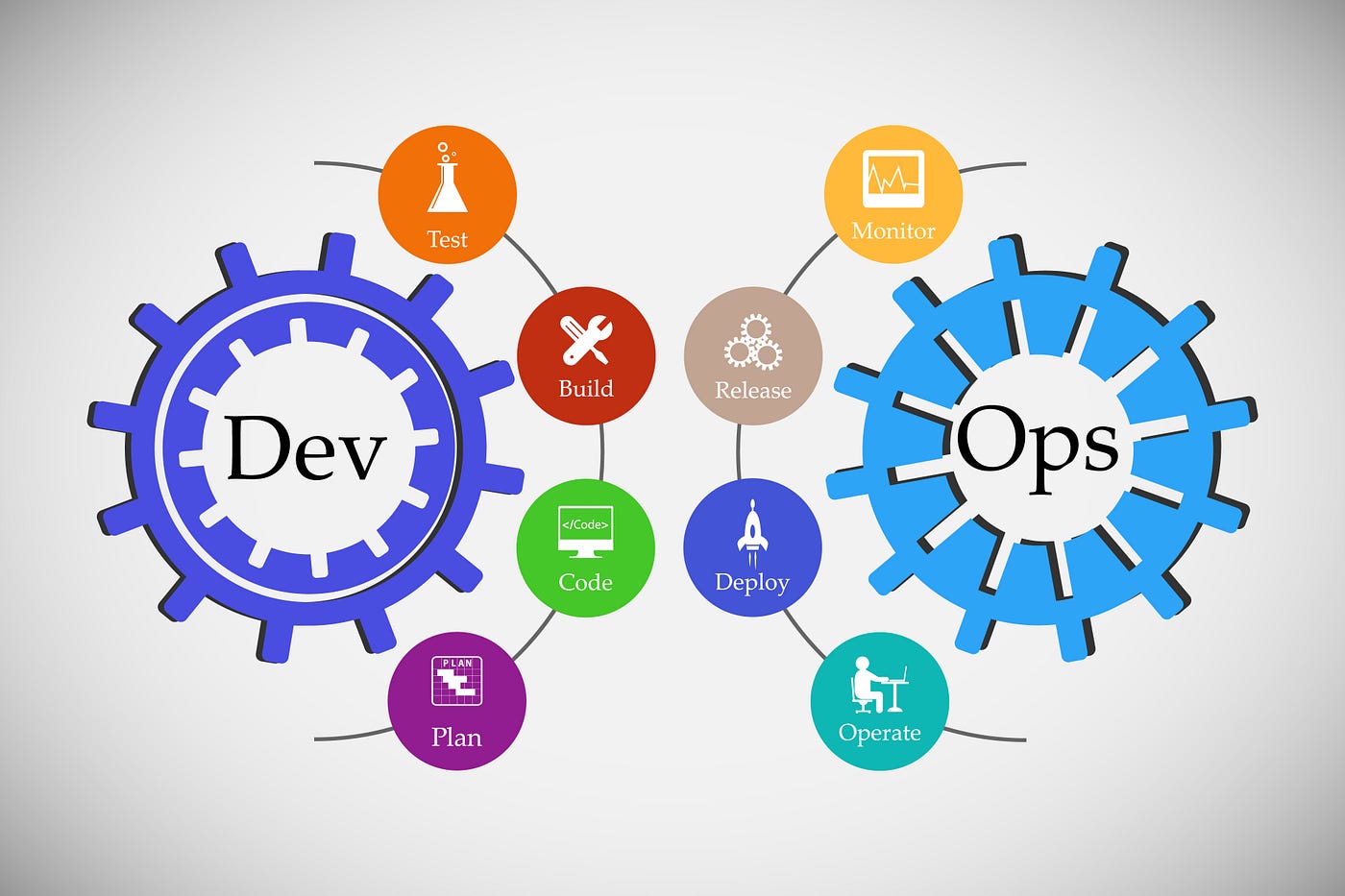
In today’s fast-paced world of software development, you’ve probably heard the term “DevOps” thrown around quite a bit. But what exactly is DevOps, and how does it relate to software development? In this blog, we at Lensoft Limited will break down the concept of DevOps in simple terms, highlighting its importance and how it plays a vital role in the world of software development.
What is DevOps?
DevOps is a set of practices, principles, and cultural philosophies that promote collaboration and communication between software development (Dev) and IT operations (Ops) teams. The term “DevOps” is a combination of “development” and “operations,” signifying the close integration of these traditionally separate functions in the software development lifecycle.

The need for DevOps
The need for DevOps arises from several challenges and shortcomings in traditional software development and IT operations practices. Here are some key reasons why DevOps has become essential:
Silos and Communication Gaps
In the past, software development and IT operations teams often worked in isolated silos, with limited communication between them. This lack of collaboration led to misunderstandings, slower response times, and inefficiencies.
“Silos and Communication Gaps” refer to the organizational barriers and lack of effective communication that often exist between different teams or departments within a company. In the context of DevOps, these silos and communication gaps can be particularly detrimental. Here’s a closer look at this challenge:
Silos: Silos represent isolated and independent groups or teams within an organization. In many traditional setups, various departments or teams work in isolation with minimal interaction or collaboration with each other. These silos can include software development, IT operations, quality assurance, and more.
Communication Gaps
Communication gaps refer to the lack of effective communication and information sharing between these siloed teams. It often results in misunderstandings, misaligned priorities, and inefficient workflows. This lack of communication can be a significant hindrance to achieving a smooth and efficient software development a
Slow Development and Deployment: Traditional development methods were often slow and cumbersome. Lengthy development cycles and manual deployment processes resulted in delayed software releases, making it challenging to keep up with rapidly changing market demands.
Frequent Errors and Downtime: The separation between development and operations teams often led to errors and issues when transitioning software from development to production environments. These errors could result in system downtime, service disruptions, and costly fixes.
Limited Agility: With the rise of agile methodologies and the need for frequent software updates, organizations needed a more agile and responsive approach to software development and deployment.
Scaling Challenges: As organizations grew, managing infrastructure and scaling applications became increasingly complex and time-consuming. Traditional approaches struggled to keep up with the demands of modern, dynamic environments.
Customer Expectations: Customers now expect rapid updates, bug fixes, and new features from software products. DevOps helps organizations meet these expectations by enabling faster development and deployment.
Market Competitiveness: In highly competitive markets, companies that can release high-quality software quickly gain a significant advantage. DevOps practices improve competitiveness by accelerating the software development lifecycle.
Security and Compliance: With the increasing importance of cybersecurity and regulatory compliance, DevOps also addresses security concerns by integrating security measures into the development process from the beginning.
The need for DevOps is driven by the desire to overcome the challenges of traditional software development and operations practices. DevOps addresses these challenges by fostering collaboration, automation, and a culture of continuous improvement, enabling organizations to develop, deploy, and maintain software more efficiently, securely, and responsively. It has become a critical approach to staying competitive and meeting the ever-evolving demands of the software industry.
How DevOps Relates to Software Development

DevOps is closely related to software development and plays a crucial role in enhancing the software development process. Here’s how DevOps relates to software development:
- Faster Development and Deployment: DevOps practices promote automation and continuous integration/continuous delivery (CI/CD) pipelines. This means that developers can write code and have it automatically tested, integrated, and deployed more quickly. As a result, software development becomes more agile, allowing for faster releases and updates.
- Improved Code Quality: DevOps incorporates automated testing and quality assurance processes throughout the development cycle. This ensures that code is thoroughly tested, reducing the likelihood of bugs and errors in the final product. By catching issues early, DevOps contributes to higher code quality.
- Continuous Integration (CI): DevOps encourages the practice of continuous integration, where code changes are frequently merged into a shared repository and automatically tested. This ongoing integration helps identify and fix integration issues early, preventing code conflicts and promoting collaboration among developers.
- Continuous Delivery and Deployment (CD): With DevOps, continuous delivery and deployment become standard practices. Continuous delivery ensures that code changes are always in a deployable state, while continuous deployment automates the release process. This allows for more frequent and reliable software releases.
- Collaboration: DevOps fosters collaboration between development and operations teams. Developers and IT professionals work closely together to solve problems and optimize the software delivery process. This collaboration helps bridge the gap between traditionally separate silos within an organization.
- Automation: Automation is a core component of DevOps. It automates repetitive tasks such as code testing, provisioning of infrastructure, and configuration management. This automation reduces manual work, minimizes the risk of human error, and accelerates the development and deployment processes.
- Feedback Loops: DevOps emphasizes the importance of feedback loops. Developers receive feedback from automated testing and monitoring tools, allowing them to make improvements quickly. This iterative feedback loop helps teams continuously enhance the software.
- Infrastructure as Code (IaC): DevOps encourages the use of infrastructure as code, where infrastructure configurations are defined in code. This allows for the automation and versioning of infrastructure, ensuring that development and deployment environments are consistent and reproducible.
- Monitoring and Metrics: DevOps emphasizes the need for monitoring and collecting metrics from production environments. This data helps teams identify performance issues, bottlenecks, and areas for improvement, leading to more reliable software.
DevOps is tightly integrated with software development, providing a framework and practices that enable developers to deliver software more quickly, with higher quality, and in a more collaborative and automated manner. It transforms the software development lifecycle, making it more responsive to customer needs and competitive in the fast-paced world of technology.
At Lensoft Limited, we recognize the significance of DevOps in modern software development, and we’re committed to adopting DevOps best practices to deliver top-notch software solutions for our clients. If you’re looking for software development services that prioritize quality, speed, and collaboration, feel free to get in touch with us. Together, we can take your software projects to the next level with the power of DevOps.